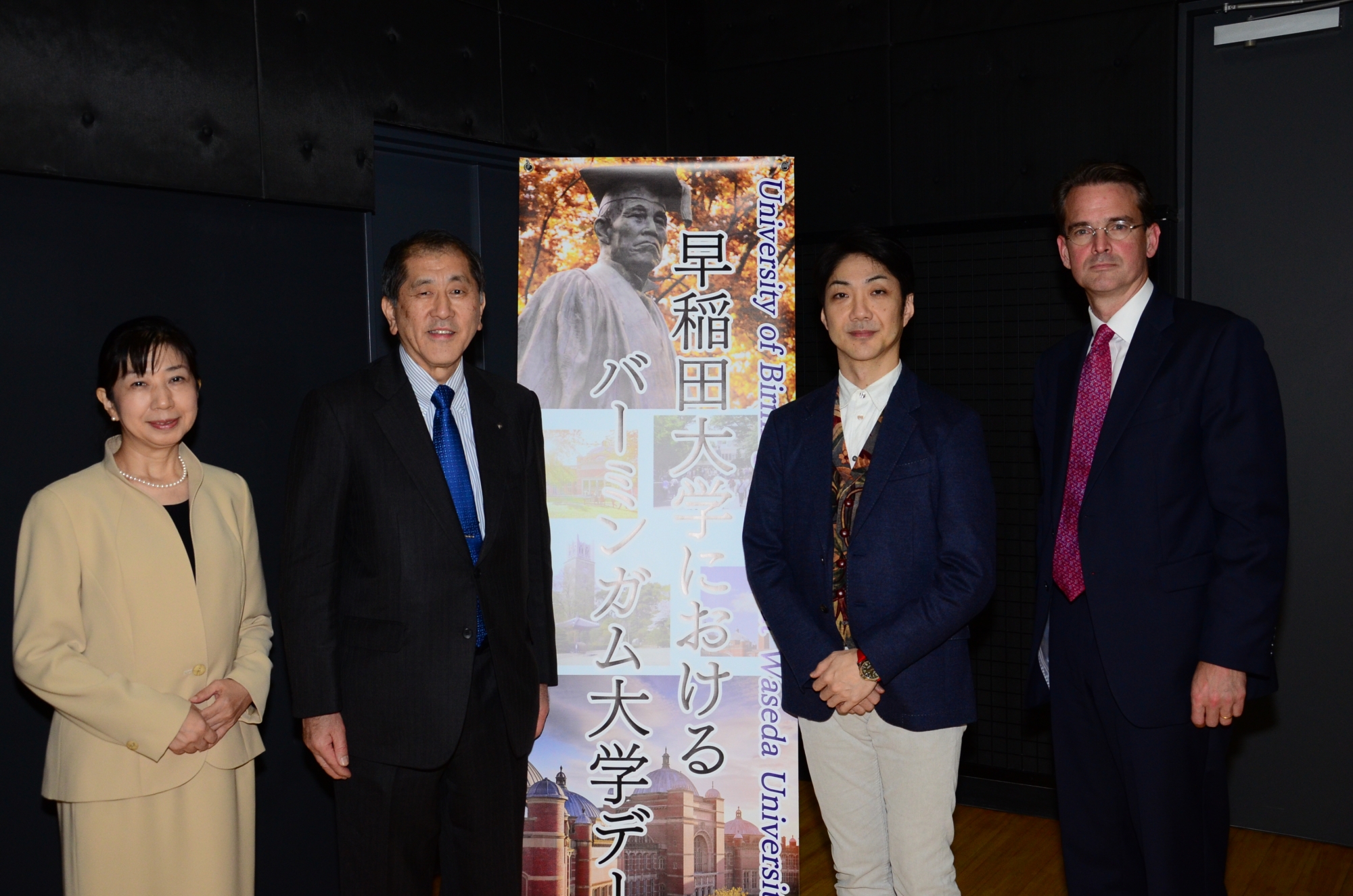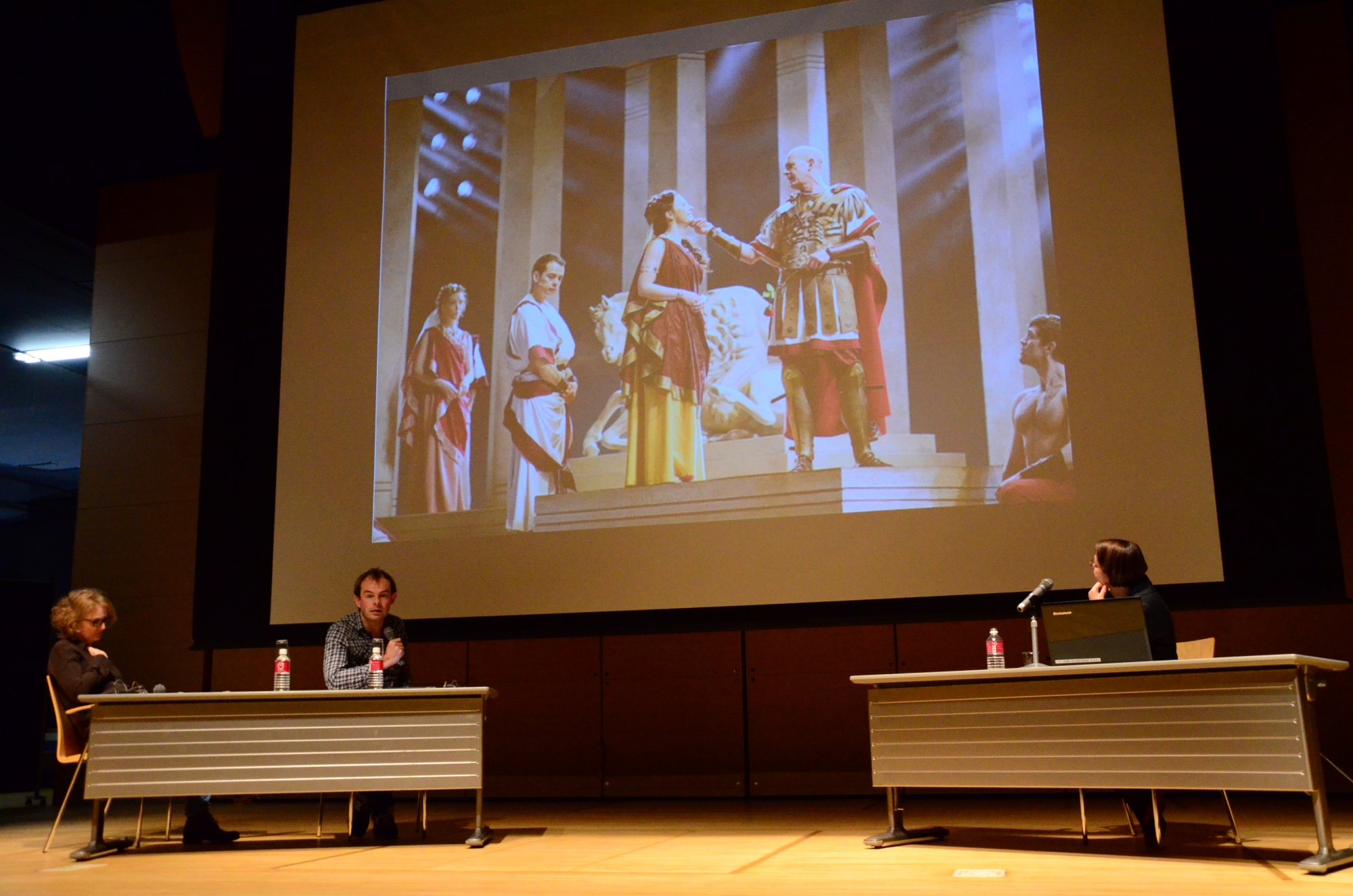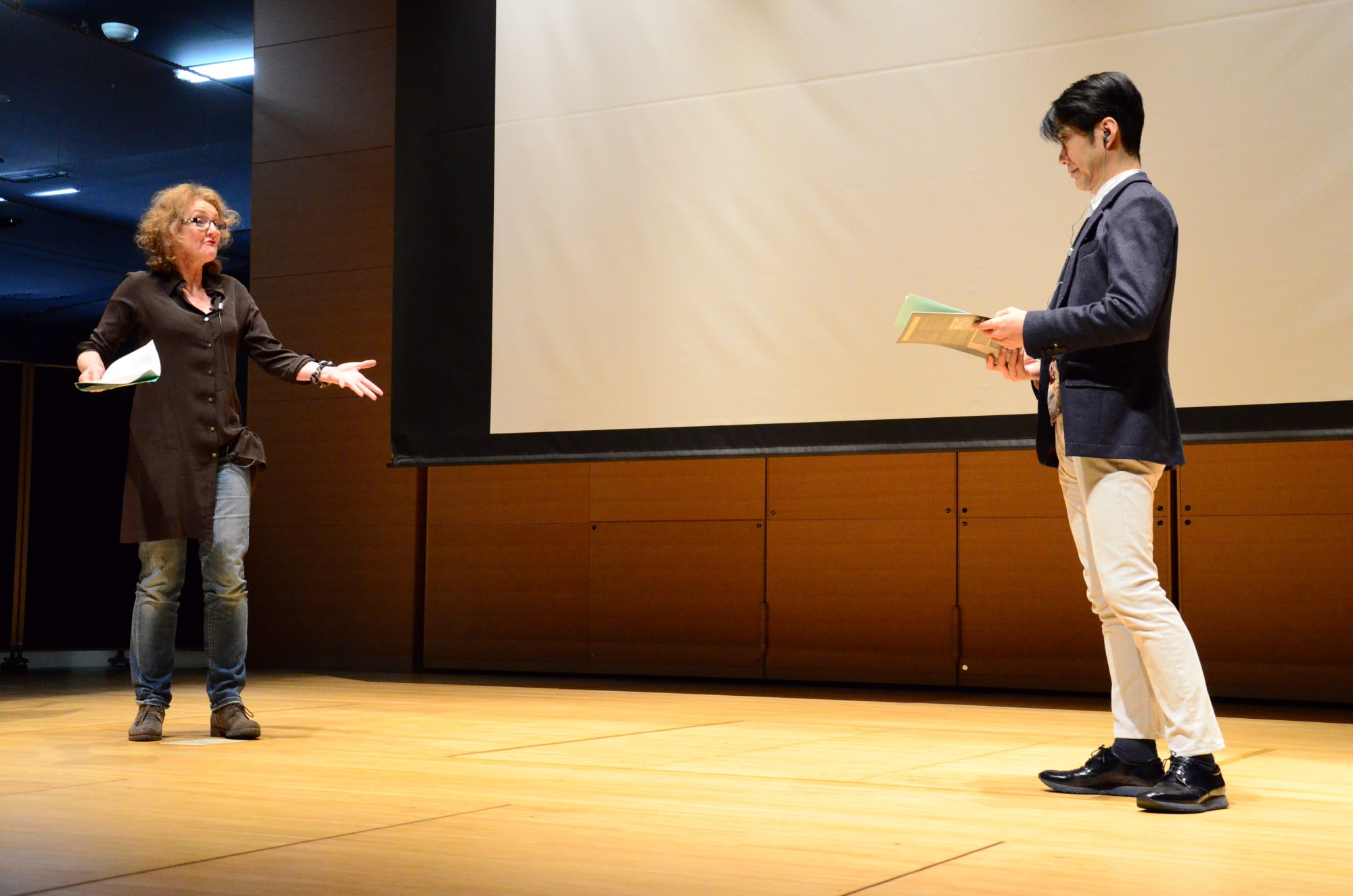Japanese Kyogen actor Mansai Nomura joins universities’ Shakespeare symposium
Wed, Dec 19, 2018-
Tags
University of Birmingham Day at Waseda University

Aston Webb Building at the University of Birmingham
Since signing academic agreements in 2000, Waseda University and the University of Birmingham have built mutual trust through the active exchange of researchers and students. In 2016, a strategic research partnership was established, producing collaboration across areas including robotics, linguistics, urban studies, and Shakespearean studies. In order to celebrate joint research results and set the stage for future collaboration between the two universities, the ‘University of Birmingham Day at Waseda University’ was held on November 26 and 27.
President Aiji Tanaka, University of Birmingham Pro-Vice-Chancellor (International) Professor Robin Mason, and British Ambassador to Japan H.E. Paul Madden each delivered a welcome speech in the opening ceremony, which was held in the Ono Auditorium on November 26.

From left: Professor Minako Okamuro (Director of the Tsubouchi Memorial Theatre Museum); Waseda University President Aiji Tanaka; Kyogen actor Mansai Nomura; and University of Birmingham Pro-Vice-Chancellor (International) Professor Robin Mason
Professor Tanaka said, “We believe that this is an extraordinary partnership made possible through trust and a relationship developed over 18 years. There are things that we cannot achieve ourselves and our friends at the University of Birmingham can help Waseda University grow and achieve our research goals.”
Ambassador Madden also noted that the Waseda-Birmingham partnership was a testament to the strong ties between the UK and Japan.
Professor Mason delivered a keynote speech placing the UK’s higher education research over the next decade in an international context, and pointing out that international collaboration leads researchers and students alike to ‘see a different view’.
“International higher education is a force not just to solve specific research problems, but also to create greater mutual understanding and tolerance”
“Seeing things in a new way contributes to our leading researchers’ ability to work together and come up with answers to some of the grand research challenges we face,” said Professor Mason. “International higher education is a force not just to solve specific research problems, but also to create greater mutual understanding and tolerance.”
Professor Mason concluded his address by expressing his hope and vision, that Waseda University and the University of Birmingham will be an exemplar of what international scientific collaboration can achieve.
Mansai Nomura addressed how the traditional Noh theater techniques, such as dead characters in Richard III wearing masks, had been used to breathe new life into performances of Shakespeare’s plays.
Further, Professor Tiffany Stern, from the University of Birmingham’s world-renowned Shakespeare Institute, presented how staging plays in Shakespeare’s time could help today’s theater makers. Angus Jackson, associate director of the Royal Shakespeare Company, discussed how he had staged a season of Shakespeare’s ‘Rome’ plays, such as Julius Caesar, while Flute Theatre director Kelly Hunter talked about using Shakespeare’s A Midsummer Night’s Dream to engage with young people with autism.

Angus Jackson, associate director of the Royal Shakespeare Company, discusses how he had staged a season of Shakespeare’s Rome plays, such as “Julius Caesar.”
Lastly, Mansai Nomura joined Kelly Hunter to deliver a unique performance from Macbeth, with Ms. Hunter speaking the part of Lady Macbeth in English while Mr. Nomura delivered Macbeth’s part in Japanese.

A unique performance from Macbeth, in which Hunter is speaking the part of Lady Macbeth in English while Nomura delivered Macbeth’s part in Japanese.
The event also marked a further day of workshops and discussions between researchers, setting the stage for more collaboration between the two universities in the future.
Organic collaboration brings new research perspectives and new values for universities
On the same day as the opening ceremony of the University of Birmingham Day at Waseda, Waseda University President Aiji Tanaka held a roundtable talk with Professor Robin Mason, Pro-Vice Chancellor (International) of the University of Birmingham, and Angus Jackson, Associate Director of the Royal Shakespeare Company. Click this link to continue reading.
Notes
- The University of Birmingham is ranked amongst the world’s top 100 institutions, with its work bringing people from across the world to Birmingham, including researchers and teachers and more than 7,000 international students from over 150 countries.
- Its Shakespeare Institute is an internationally renowned research institution established in 1951 to push the boundaries of knowledge about Shakespeare studies and Renaissance drama. Based in Stratford-upon-Avon, the Institute is led by Professor Michael Dobson.
- Modelled after England’s 16th-century Fortune Theatre, the Tsubouchi Memorial Theatre Museum is Asia’s foremost museum of theatre arts, housing a collection of one million items and an online digital museum. Opened in 1928, it is named after Prof Tsubouchi Shoyo (1859-1935), a pioneer of modern literature and theatre and founder of Waseda’s department of literature. Prof Tsubouchi was a lover of Shakespeare, being the first person to translate all of Shakespeare’s plays into Japanese, an incredible forty volumes. His dedication to Shakespeare was life-long, spending his last two years revising the entire collection. The museum has become part of the history of drama in Japan over the years.
- Links
-
- Faculty of Letters, Arts and Sciences, Waseda University
- The Shakespeare Institute, the University of Birmingham
- Global Japanese Studies Unit, Top Global University Project, Waseda University
- Collaborative Research Centre for Theatre and Film Arts, The Tsubouchi Memorial Theatre Museum, Waseda University













